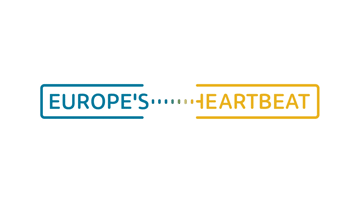The Dormagen-based startup BasePeak supports companies and authorities in NRW and beyond with modern IT solutions. The goal is to streamline the often complex and lengthy digitalization process. To this end, BasePeak develops secure, future-proof software solutions and AI agents. The team supports companies throughout the process, from defining the problem to implementing and operating it in the business. The focus is always on the question: How can AI-controlled systems simplify processes and optimize resource usage?
For founder Thorsten Klein, who has already gained experience in German corporations and American tech startups, one thing is clear: NRW offers the ideal environment because many potential partners from business and research are united here in a dense network. In an interview with NRW.Global Business, he explains how BasePeak is already paving an easier way to the digital future easier for entrepreneurs and public authorities, what challenges they will face and why the startup chose the region as the starting point for its development.
Mr. Klein, what inspired you to found BasePeak? Was there a particular situation that prompted you to take action?
Even during my studies, I focused on automating workflows based on self-hosted open-source solutions. After my first job, I freelanced with several companies and government institutions for a few years and recognized the temptation to become dependent on other companies by taking the convenient route to the public cloud. Yet, there is so much well-maintained, publicly available software that you can operate yourself at any time. However, it is often not used due to a lack of personnel or security and scaling concerns. With BasePeak, we aim to showcase the advantages of open-source software by combining components in a smart way. This allows us to offer public administrations and German SMEs the opportunity to operate AI systems and cloud-based workstations with complete sovereignty within Germany and the EU. This creates alternatives to global applications that can handle data protection-relevant information without sacrificing performance or usability.
What are some typical challenges that companies or public authorities come to you with?
Public authorities, in particular, have extremely high data protection requirements. This presents a significant challenge, especially when it comes to using AI solutions. With large AI providers, any input can be read and used to train AI models. Although it is often possible to opt out, hardly anyone feels truly safe. After all, there are already European and German model providers. In some cases, however, the need for security and sovereignty is so great that only locally installed software meets the requirements. Our solution works at all levels: It can be fully automatically managed in our German cloud environment, directly on our servers in the data center, at the municipal IT service provider, or in the basement of the town hall. Whether to use external or internal, self-operated AI models is ultimately up to the customer. We provide the entire setup, including the infrastructure, operating system, and chat interface for end users.
In addition to cloud solutions, especially cloud-based workstations, you focus on artificial intelligence. What does an AI agent do and how does it support your customers?
The term "AI agent" is overused and controversial among experts. According to our understanding, an AI agent is an autonomous system that can perform a task based on specifications (system prompt) and user input (user prompt). AI agents can use tools such as databases, the Internet, and business software to deliver results with or without human interaction. AI agents can solve problems in a targeted manner and in several steps while also "remembering" previous results. One example is a simple agent we built for the immigration office in my hometown. It assists caseworkers with the initial assessment of individual cases. The agent independently searches for relevant legal texts, determines which requirements are necessary to fulfill the request, searches the requesting person's file, and provides an assessment of whether the request can be fulfilled or if more information is needed. Of course, human judgment is still essential for critical applications like this one. The important point is that clearly defined workflows can be transferred into an AI-supported workflow, in which the AI assists humans.
BasePeak is supported by the NRW startup grant, and the jury speaks of its "real startup DNA." How does BasePeak successfully transition from idea to prototype to market-ready product?
As we work toward creating a market-ready product, we simply engage with the market. We are fortunate to work closely with the city of Dormagen and to be able to build on the support of the business development agencies in Dormagen and Neuss. This enables us to collaborate directly with public administrations to develop requirements for AI infrastructure and identify obstacles to the local implementation of such platforms. Since most administrations and many companies face similar problems and have similar optimization potential, we rely on the scaling effect of divisibility with our platform. This means that the AI agent used in the Dormagen Immigration Office can largely be used in other municipalities as it is. Our idea and our vision are then validated directly by our target group, who refine them according to their needs.
How do you rate the startup ecosystem in NRW in terms of funding programs, research, talent and networking?
I am very grateful for the support we receive from the Dormagen and Neuss business development agencies and the Startercenter NRW. Our location near the major cities of Cologne and Düsseldorf, as well as our proximity to many excellent universities, provides us with excellent conditions for networking, talent acquisition, and various funding programs. There are plenty of networking events for startups and companies throughout NRW, such as GovTech. A quick look at social media proves this. I have also become familiar with many of the state of NRW's funding programs, particularly the transformation programs in the Rhineland region, and I am confident that we will soon be successful with them, too.


